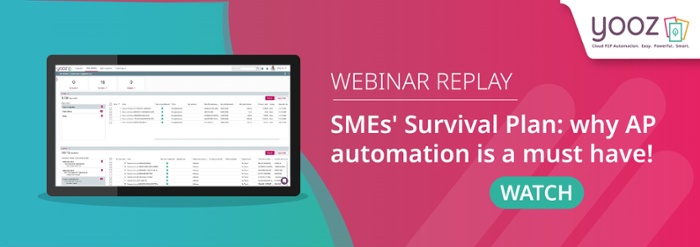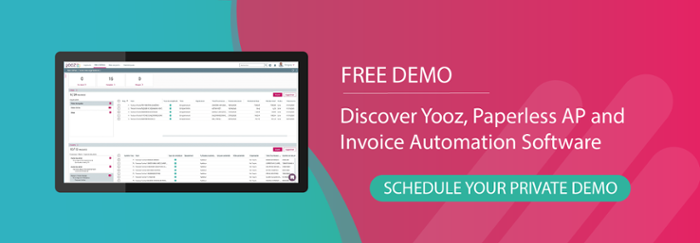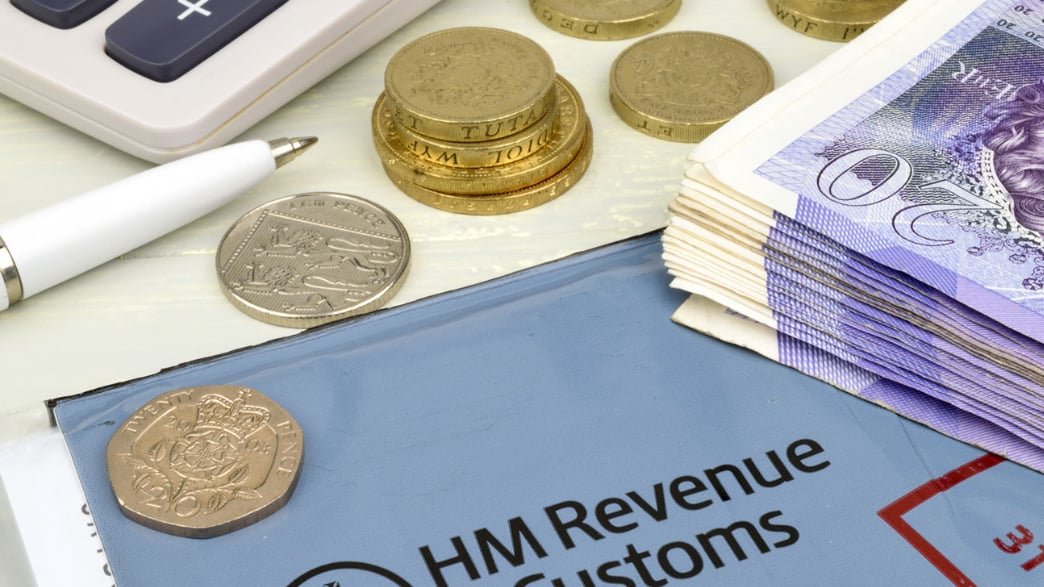In a time when digitalisation is reshaping industries across the board - from retail to manufacturing, hospitality to pharmaceuticals - the transformative power of technology is fundamentally reshaping business operations.
The State Of Automation in Finance 2024 - eBook
From cloud-based computing platforms and automation, to end-to-end analytics and artificial intelligence, current technologies and software systems are empowering organisations to do truly incredible things.
The finance sector is no exception. According to 2022 research from PwC, 73% of chief financial officers recognise that digitalising the finance function is a high priority. Furthermore, almost half (44%) expect their budget for new, cloud-based technologies to grow in the future.
Now, more than ever before, it is time to explore the impact of digitalisation in finance on your organisation.
The evolution of the modern CFO
In recent years the remit of the Chief Financial Officer (CFO) has completely changed. Today, they are tasked with not only meeting the evolving needs of suppliers and customers but also with providing support to fellow leaders and employees.
The contemporary CFO
Emerging as pioneers of digital transformation within the finance function, today’s CFOs are at the forefront of identifying new opportunities, technologies and strategies. Their influence spans all the way from enhancing data entry processes to driving sustainable growth.
However, the role of the CFO goes beyond software adoption (which includes Enterprise Resource Planning as the backbone). CFOs are also responsible for ensuring that future accounting professionals who join their organisation are equipped with the necessary skills and tools, as well as crafting a strategic vision. This means acquiring both technological and methodological skills.
What is digitalisation?
Simply put, digitalisation is about implementing cutting-edge, emerging technologies to elevate accounting functions and business processes. While the traditional benefits of cost reduction, error mitigation and freeing up the time of finance professionals continue, the true potential of digitalisation lies in the ability to access powerful technologies that propel controlling and accounting divisions into the future.
In essence, digitalisation represents business process innovation at its finest.
What is digital accounting?
Digital accounting involves generating, handling, transferring and managing financial information in an electronic format. It uses technology to digitalise and automate many of the manual accounting processes, enhancing accuracy and efficiency in financial record-keeping and reporting.
Digitalisation in accounting: Which processes can be automated?
Accounting, an area once characterised by manual data entry and paperwork, has undergone a significant transformation thanks to automation technologies. These advancements not only streamline processes and reduce the risk of human error, they also free up valuable time for employees to focus on other higher-value tasks.
Let's explore some of the key accounting processes that can be digitalised, transforming the way that financial data is managed.
- Data entry and bookkeeping
Gone are the days of manually inputting every transaction into ledgers and spreadsheets. Automation tools can quickly extract data from various sources such as invoices and receipts, compare them to existing data and automatically populate accounting software fields.
This not only accelerates the bookkeeping process but it also minimises the chances of data entry errors that could lead to discrepancies.
- Invoice processing
Automation eliminates the amount of paper invoices laying around. Instead, they are scanned, digitised and routed through predefined approval processes.
Intelligent systems can even compare invoice data against Purchase Orders (POs) and contracts, flagging any inconsistencies for human review right at the start of the process.
- Document storage and retrieval
Goodbye paper! Automation allows for the digitalisation of documents, making them easily searchable and accessible. This improves document management, creates a digital audit trail and strengthens collaboration across company divisions.
- Expense management
A digital process helps ensure accurate expense tracking and compliance with internal controls. Employees can capture receipts using mobile applications which automatically extract relevant information and categorise expenses.
The information is then integrated directly into the software, eliminating any need for manual data entry. Automation can also help enforce company expense policies by flagging non-compliant expenses and automatically routing them for approval.
- Financial reporting
Automated reporting transforms the entire process of compiling and generating financial statements. By integrating with various data sources, the software can automatically pull required financial data and generate reports in real time.
This helps ensure accuracy and timeliness in reporting. In addition, it can be done at regular intervals or on-demand, improving the consistency and standardisation of financial reporting across the organisation.
- Analytics and data visualisation
Automation tools can quickly transform raw financial data into graphics and reports, providing easily digestible insights that help stakeholders understand financial trends, performance metrics and key indicators. This enables better decision-making and strategic planning.
- Auditing and compliance
An automated system keeps a digital record of every step of the invoice process. It can also easily generate and submit regulatory reports, ensuring that an organisation remains compliant with tax laws, financial regulations and industry standards.
This reduces the risk of penalties and legal issues associated with non-compliance.
- Forecasting and budgeting
Automation facilitates the creation of accurate financial forecasts and budgets by analysing historical data and other relevant variables. This helps organisations to understand their current cash flow, make informed strategic decisions and adapt to any changing economic conditions.
| Accounting Process | Description | Benefits of Digitalisation |
| Data Entry and Bookkeeping | Automates the extraction of data from sources like invoices and receipts, and populates accounting software fields. | Speeds up bookkeeping, reduces manual data entry errors and ensures accuracy. |
| Invoice Processing | Digitises paper invoices, routes them for approval and compares data against Purchase Orders (POs) and contracts. | Minimises paperwork, streamlines approvals and flags inconsistencies early in the process. |
| Document Storage and Retrieval | Converts physical documents to digital, making them searchable and accessible while creating a digital audit trail. | Improves document management, enables faster retrieval and enhances cross-departmental collaboration. |
| Expense Management |
Automates expense tracking and compliance, allowing employees to capture receipts via mobile apps and directly integrate the data into the software. | Ensures accurate tracking and compliance, and eliminates manual data entry. |
| Financial Reporting | Automates the generation of financial statements by pulling data from various sources and creating real-time reports. |
Enhances accuracy, timeliness and consistency in financial reporting. |
| Analytics and Data Visualisation | Converts raw financial data into visual reports and insights, aiding in understanding trends and performance metrics. | Facilitates better decision-making and strategic planning. |
| Auditing and Compliance | Keeps digital records of every step in processes like invoicing, ensuring easy generation of reports and regulatory compliance. | Simplifies audits, reduces legal risks and ensures compliance with financial regulations. |
| Forecasting and Budgeting | Uses automation to analyse historical data and other variables, creating accurate financial forecasts and budgets. | Improves cash flow understanding, strategic decision-making and adaptability to economic changes. |
How does digitalisation benefit accounting professionals?
- Streamlines administrative tasks
Digitalisation streamlines administrative tasks by replacing paper-based documents like purchase orders, shipping notices and invoices with efficient, cloud-based Electronic Data Interchange (EDI).
This eliminates the need for manual data processing and simplifies communication between organisations, suppliers and clients. No need to mess around with different internal and external interfaces between you and the supplier!
- Automates transactions
Cloud-based accounting software makes it incredibly easy for accounting professionals to seamlessly manage and scale manual, routine tasks as well as any other corresponding business processes. For example, with a cloud-based accounting system, invoices and receipts can be automatically directed to an online portal, where they are organised, catalogued and stored for easy access.
This eliminates paperwork and, as there's no physical footprint in the office, there's more space available for staff and expansion.
- Empowers with powerful analytics
Need to do financial forecasting for the next quarter or year? No problem. With digital financial systems, you can capture, analyse, tag and store every bit of information you receive.
For instance, if you want to run a financial forecast on possible income next quarter, the system will automatically look at past business performance, budgets, market conditions (which you can adjust as necessary), trends, business goals, risks, current revenue and more to generate detailed reports.
- Enables real-time collaboration from anywhere, anytime
One standout advantage of digitalisation in accounting is the ability to connect staff members regardless of their geographical location through an internet connection. This real-time access to financial systems, data analysis and tools helps employees to perform their roles efficiently and effectively.
This not only allows organisations to boost competitiveness from a business process perspective as well as attractiveness to potential candidates, but it also helps timely decision-making through access to real-time, always-accessible information.
- Improves scalability
Scalability - the ability to change in size or scale - is absolutely crucial and often the defining factor between business success and failure. Digitalised finance systems effortlessly adjust to an organisation's expanding needs, supporting larger client bases, greater transaction volumes and shorter invoicing periods.
Furthermore, these systems are often modular, meaning users can add new capabilities over time to address new needs and challenges. For example, organisations can implement Customer Relationship Management (CRM) to help successfully manage supplier and customer accounts.
- Simplifies the auditing process
Digitalisation ensures the availability of digital records, greatly simplifying the audit process. Digital records are easily accessible and reviewable, thereby reducing the time and effort required for audit preparation from finance staff.
Thanks to simplified auditing processes, finance professionals can spend less time worrying about routine reviews and more time focusing on value-added activities and helping other departments. This in turn increases their overall contribution to the organisation.
Are you ready for digitalisation in accounting?
In this era of rapid digital transformation, as businesses worldwide embrace the digital landscape and CFOs tackle new hurdles, the departure from traditional paper-driven processes and manual data entry becomes even more important.
However, with the abundance of digital finance software solutions - specifically cloud solutions - now available, organisations must take the time to consider what's right for them and how such technology fits into their overall plans. Conducting an accounts payable software comparison is essential to ensure they choose a solution that aligns with their needs and optimises their financial processes.
While essential attributes such as cost, efficiency, speed and security are clearly prerequisites for any ideal solution, factors such as scalability, seamless integration and user-friendliness are equally important.
This is where Yooz emerges as a game-changer.
Revolutionise your journey with Yooz
Yooz is a leader in Accounts Payable and Purchase-to-Pay automation, providing a smart, powerful and easy-to-use cloud computing platform. It delivers amazing savings, speed and security with affordable zero-risk subscription models. With a global footprint encompassing over 5,000 clients and 300,000 users, Yooz is a trusted and proven ally in the digital realm.
Want to find out more? Check out Yooz.
FAQs
How can digitalisation improve the efficiency of my accounting processes?
What are the key benefits of using Yooz's digital accounting platform over traditional methods?
Yooz’s cloud-based accounting platform offers several key advantages over traditional accounting methods, such as:
- Automation: Automatically process and approve invoices in minutes.
- Cost savings: Reduce processing costs by up to 80% compared to manual systems.
- Accessibility: Access your data from anywhere, at any time, with real-time updates.
- Compliance: Stay compliant with tax regulations and audit requirements through digital documentation and tracking.
- Scalability: Easily scale our solutions to grow with your business needs.
How does Yooz ensure data security and compliance in digital accounting?
How easy is it to integrate Yooz's digital accounting solution with my existing ERP or accounting software?









